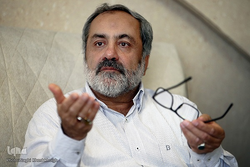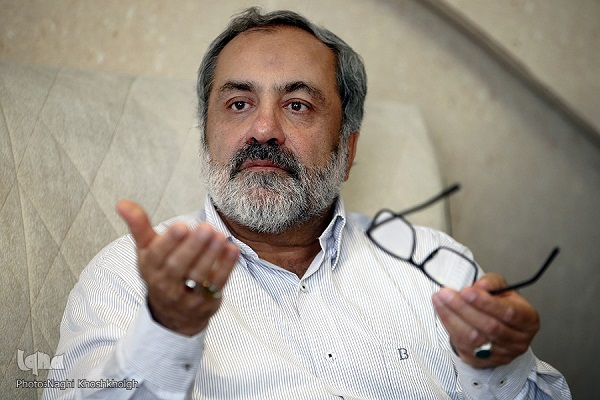Hope in God Should Appear in Action


In a series of sessions recently held, sociologist and religious researcher Emad Afroogh, who passed away last month, tried to introduce the thoughts of Imam Ali (AS).
In the 26th session, he talked about Imam Ali’s (AS) views in Nahj al-Balagha on hope in God. Here is a summary of his remarks:
In Sermon 160 of Nahj al-Balagha, Imam Ali (AS) points to the hope that Prophets Moses (AS), Jesus (AS) and Muhammad (PBUH) had in God.
Imam (AS) says in this sermon: “He claims according to his own thinking that he hopes from Allah. By Allah, the Great, he speaks a lie. The position is that his hope (in Allah) does not appear through his action although the hope of every one who hopes is known through his action. Every hope is so, except the hope in Allah, the Sublime, if it is impure; and every fear is established except the fear for Allah if it is unreal. He hopes big things from Allah and small things from men but he gives to man (such consideration as) he does not give to Allah. What is the matter with Allah, glorified be His praise? He is accorded less (consideration) than what is given to His creatures. Do you ever fear to be false in your hope in Allah? Or do you not regard Him the center of your hope?”
Elsewhere in the sermon, Imam (AS) talks about Prophets Moses (AS) and Jesus (AS) and Muhammad (PBUH): “If you want, I will, as a second example, relate to you concerning Musa, the Interlocutor of Allah (AS.) when he said: O' Allah! I need whatever good Thou mayest grant me (Quran, 28:24).
By Allah, he asked Him only for bread to eat because he was used to eating the herbs of the earth, and the greenness of the herbs could be seen from the delicate skin of his belly due to his thinness and paucity of his flesh.
If you desire I will tell you about ‘Isa (AS) son of Maryam (Mary). He used a stone for his pillow, put on coarse clothes and ate rough food. His condiment was hunger. His lamp at night was the moon. His shade during the winter was just the expanse of earth eastward and westward. His fruits and flowers were only what grows from the earth for the cattle. He had no wife to allure him, nor any son to give grief, nor wealth to deviate (his attention), nor greed to disgrace him. His two feet were his conveyance and his two hands his servant.”
Imam Ali (AS) then highlights the example set by the Holy Prophet (PBUH):
“He took the least (share) from this world and did not take a full glance at it. Of all the people of the world he was the least satiated and the most empty of stomach.
The world was offered to him but he refused to accept it. When he knew that Allah, the Glorified, hated a thing, he too hated it; that Allah held a thing low, he too held it low; that Allah held a thing small, he too held it small. If we love what Allah and His Prophet hate and hold great what Allah and His Prophet hold small, that would be enough isolation from Allah and transgression of His commands.
The Prophet used to (sit and) eat on the ground, and sit like a slave. He repaired his shoe with his own hands, and patched his clothes with his own hands. He would ride an unsaddled ass and would seat someone behind him. If there was a curtain on his door with pictures on it he would say to one of his wives. "O such-and-such, take it away out of my sight because if I look at it I recall the world and its allurements."
Thus, he removed his heart from this world and destroyed its remembrance from his mind. He loved that its allurements should remain hidden from his eye so that he should not secure good dress from it, should not regard it a place of stay and should not hope to live in it. Consequently, he removed it from his mind, let it go away from his heart and kept it hidden from his eyes, just as a person who hates a thing hates to look at it or to hear about it.”


